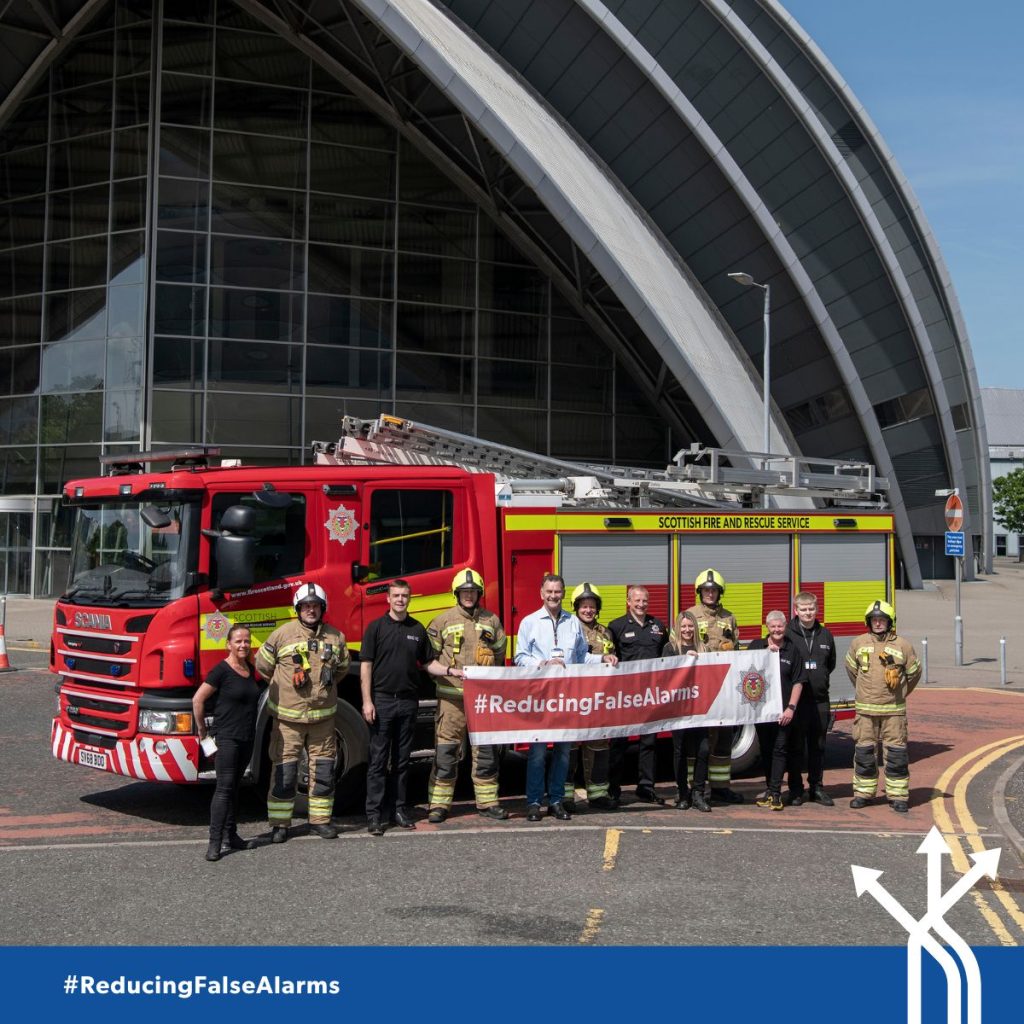Firefighters across the West of Scotland responded to more than 14,000 unwanted fire alarm signals last year – the equivalent of around 38 a day.
From 1 July, 2023 an alarm activation will require those with fire safety responsibility, known as dutyholders, to investigate the cause of an alarm and only call 999 once a fire has been confirmed. This approach is already embedded across several other UK fire and rescue services, who require a confirmed fire before they send fire appliances.
The change in response will affect all premises and businesses who do not provide sleeping accommodation. Hospitals, care homes, hotels, student accommodation and domestic dwellings will continue to receive the current level of emergency response.
Workplaces are being reminded to provide adequate training for staff on the new process and put in place fire safety provisions.
Deputy Assistant Chief Officer Stephen Wright is the Scottish Fire and Rescue Service Head of Service Delivery for the West of Scotland.
He said: “We will continue to work with dutyholders to help them better understand their obligations, but I must stress the importance of having adequate training in place for staff and in ensuring appropriate fire safety provisions are in place within your premises.
“By changing our response to these types of incidents, we can potentially free up 64,000 hours every year giving firefighters more time for other activities, such as training and fire safety prevention work.
“However, there are benefits to businesses too by preventing these incidents from happening in the first place. On average, every unwanted fire alarm signal interrupts business for around 27 minutes each time.”
The Scottish Fire and Rescue Service’s West region covers areas including the West Central Belt, Ayrshire, East and West Dunbartonshire, Argyll and Bute, and Dumfries and Galloway.
Glasgow’s Scottish Event Campus is one of the buildings which has taken steps to prepare for the transition.
The building’s Chief Executive, Peter Duthie, said: “The safety of our team members and customers is our number one priority.
“We work closely with the Scottish Fire and Rescue Service to make sure our fire prevention systems are maintained to the highest possible standards.
“We very much welcome this initiative. Our process ensures a 24/7 seek and search security team which prevents any unnecessary calls to the Scottish Fire & Rescue Service.”
Unfortunately, most signals from automatic fire alarm systems are not actual fires – they are false alarms often caused by cooking fumes, dust or a lack of maintenance. This means our fire crews are called out unnecessarily.
This change in response to unwanted fire alarms creates capacity for operational crews to respond to real emergencies, whilst reducing the road risk and the impact on the environment caused by fire appliances making unnecessary blue light journeys.
Across the whole of Scotland, the number of unwanted fire alarm signal (UFAS) incidents during 2022 was around 30,000, which is the equivalent of around 80 a day.
The forthcoming changes on 1 July 2023 follow the outcome of a public consultation held in 2021. The business advice pages on the Scottish Fire and Rescue Service website has guidance to help dutyholders get ready






